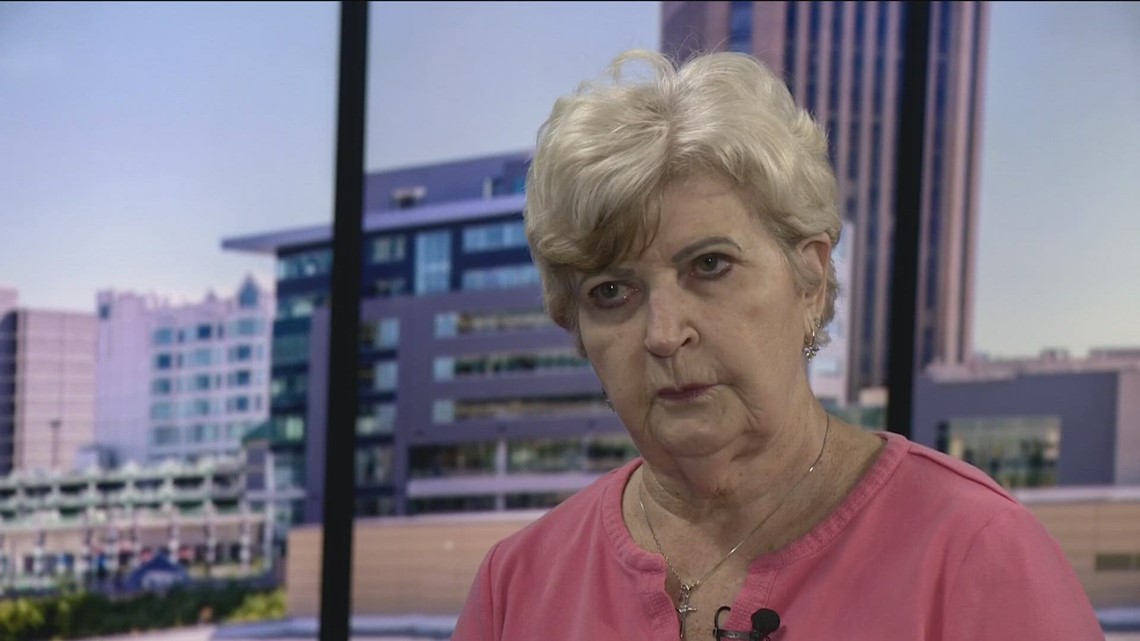Synthetic intelligence is attaining state lawmakers’ awareness, and they have a lot of issues

HARTFORD, Conn. (AP) — As state lawmakers rush to get a take care of on rapidly-evolving synthetic intelligence technology, they’re frequently focusing to start with on their own condition governments in advance of imposing restrictions on the non-public sector.
Legislators are searching for techniques to guard constituents from discrimination and other harms whilst not hindering chopping-edge breakthroughs in medication, science, company, schooling and extra.
“We’re starting with the govt. We’re attempting to set a superior case in point,” Connecticut state Sen. James Maroney explained during a flooring discussion in May.
Connecticut programs to stock all of its authorities methods using synthetic intelligence by the finish of 2023, publishing the information and facts on the net. And starting up future year, state officers will have to often evaluate these systems to ensure they won’t direct to illegal discrimination.
Maroney, a Democrat who has come to be a go-to AI authority in the Standard Assembly, stated Connecticut lawmakers will possible concentration on private marketplace next yr. He plans to operate this tumble on product AI legislation with lawmakers in Colorado, New York, Virginia, Minnesota and in other places that incorporates “broad guardrails” and focuses on matters like solution legal responsibility and demanding impression assessments of AI techniques.
“It’s rapidly modifying and there’s a rapid adoption of people working with it. So we need to get ahead of this,” he stated in a later on interview. “We’re basically by now at the rear of it, but we cannot really wait around as well a great deal extended to set in some variety of accountability.”
Total, at minimum 25 states, Puerto Rico and the District of Columbia released synthetic intelligence expenditures this 12 months. As of late July, 14 states and Puerto Rico had adopted resolutions or enacted laws, according to the Nationwide Convention of Point out Legislatures. The listing doesn’t involve bills concentrated on precise AI technologies, these kinds of as facial recognition or autonomous automobiles, anything NCSL is tracking individually.
Legislatures in Texas, North Dakota, West Virginia and Puerto Rico have designed advisory bodies to examine and keep track of AI programs their respective state organizations are making use of, even though Louisiana fashioned a new know-how and cyber security committee to research AI’s effects on point out functions, procurement and policy. Other states took a very similar strategy final calendar year.
Lawmakers want to know “Who’s working with it? How are you employing it? Just gathering that knowledge to figure out what is out there, who’s accomplishing what,” claimed Heather Morton, a legislative analysist at NCSL who tracks artificial intelligence, cybersecurity, privateness and net troubles in point out legislatures. “That is something that the states are seeking to determine out within just their personal point out borders.”
Connecticut’s new legislation, which calls for AI systems employed by point out businesses to be often scrutinized for probable unlawful discrimination, will come soon after an investigation by the Media Independence and Details Obtain Clinic at Yale Regulation School decided AI is already becoming utilised to assign college students to magnet faculties, established bail and distribute welfare advantages, among other responsibilities. Nevertheless, particulars of the algorithms are mostly unknown to the public.
AI technology, the group claimed, “has unfold all through Connecticut’s govt swiftly and mainly unchecked, a advancement which is not special to this point out.”
Richard Eppink, lawful director of the American Civil Liberties Union of Idaho, testified prior to Congress in May perhaps about finding, as a result of a lawsuit, the “secret computerized algorithms” Idaho was working with to assess individuals with developmental disabilities for federally funded health and fitness care providers. The automatic program, he explained in prepared testimony, integrated corrupt details that relied on inputs the point out hadn’t validated.
AI can be shorthand for several various systems, ranging from algorithms recommending what to look at following on Netflix to generative AI systems this sort of as ChatGPT that can aid in composing or produce new images or other media. The surge of professional financial investment in generative AI instruments has generated public fascination and fears about their capacity to trick people today and spread disinformation, between other risks.
Some states have not tried to tackle the difficulty still. In Hawaii, state Sen. Chris Lee, a Democrat, stated lawmakers didn’t move any laws this year governing AI “simply because I think at the time, we didn’t know what to do.”
Instead, the Hawaii Residence and Senate handed a resolution Lee proposed that urges Congress to undertake security tips for the use of artificial intelligence and restrict its software in the use of pressure by law enforcement and the armed forces.
Lee, vice-chair of the Senate Labor and Engineering Committee, stated he hopes to introduce a bill in up coming year’s session that is equivalent to Connecticut’s new regulation. Lee also would like to make a long term doing work group or division to tackle AI matters with the proper abilities, a little something he admits is tricky to find.
“There aren’t a ton of folks correct now operating within condition governments or classic institutions that have this variety of expertise,” he reported.
The European Union is leading the world in creating guardrails all-around AI. There has been dialogue of bipartisan AI legislation in Congress, which Senate The vast majority Chief Chuck Schumer mentioned in June would increase the technology’s rewards and mitigate major threats.
Still the New York senator did not dedicate to distinct facts. In July, President Joe Biden declared his administration had secured voluntary commitments from 7 U.S. businesses meant to be certain their AI goods are protected right before releasing them.
Maroney mentioned ideally the federal federal government would guide the way in AI regulation. But he said the federal federal government can’t act at the identical pace as a condition legislature.
“And as we’ve observed with the data privateness, it is actually had to bubble up from the states,” Maroney said.
Some condition-amount expenses proposed this calendar year have been narrowly personalized to handle unique AI-linked problems. Proposals in Massachusetts would spot limitations on mental overall health vendors utilizing AI and avoid “dystopian function environments” where workers do not have management about their particular info. A proposal in New York would position limits on employers employing AI as an “automated work determination tool” to filter job candidates.
North Dakota passed a invoice defining what a person is, producing it crystal clear the term does not consist of synthetic intelligence. Republican Gov. Doug Burgum, a extended-shot presidential contender, has claimed these guardrails are necessary for AI but the technologies should nevertheless be embraced to make condition government significantly less redundant and more responsive to citizens.
In Arizona, Democratic Gov. Katie Hobbs vetoed laws that would prohibit voting devices from obtaining any synthetic intelligence computer software. In her veto letter, Hobbs claimed the invoice “attempts to solve problems that do not now face our point out.”
In Washington, Democratic Sen. Lisa Wellman, a previous techniques analyst and programmer, claimed state lawmakers want to put together for a globe in which machine devices turn out to be ever a lot more prevalent in our every day life.
She designs to roll out legislation upcoming year that would require pupils to consider laptop science to graduate higher university.
“AI and pc science are now, in my intellect, a foundational component of education,” Wellman reported. “And we will need to comprehend seriously how to integrate it.”
___
Linked Push Writers Audrey McAvoy in Honolulu, Ed Komenda in Seattle and Matt O’Brien in Providence, Rhode Island, contributed to this report.
/cloudfront-us-east-1.images.arcpublishing.com/gray/MZZ6VZA235A7XOAVDRAO3AOUWQ.jpg)





